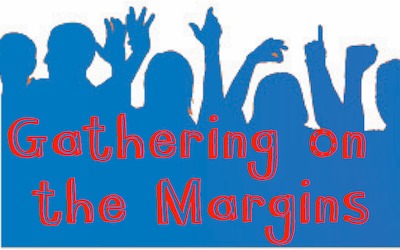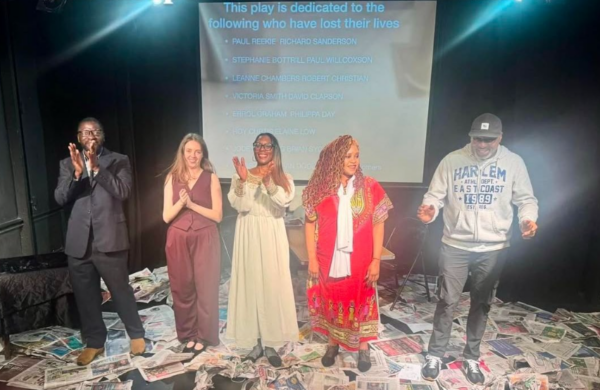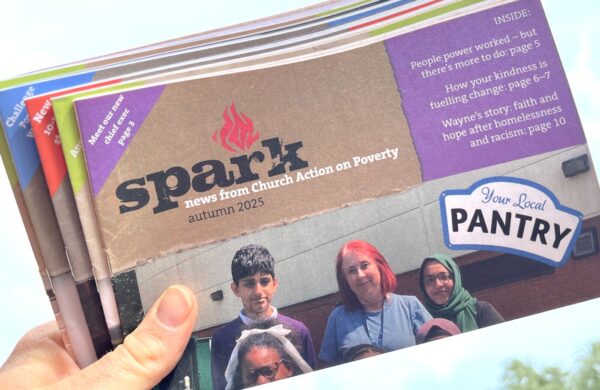Gathering on the Margins – 5 May
This week in our gathering on the margins we were talking about the media, and the issues around reporting people’s stories fairly and accurately.

We are having these gatherings every Tuesday at 2 pm. Join us on Zoom to connect with people across the country to hear each other’s stories, discuss issues that we are facing and share advice.
We are having these gatherings every Tuesday at 2 pm. Join us on Zoom to connect with people across the country to hear each other’s stories, discuss issues that we are facing and share advice.
Matt Sowerby, our poet in digital residence started us off by sharing a poem he had written inspired by a conversation with Penny about life on the Byker estate. Matt observed that often in the media people living in poverty are often either demonised as ‘benefit scroungers’ or made into unrealistically angelic victims with no agency for themselves, and both of these portrayals strip them of their humanity. In his poem he tries to bring a more balanced perspective in what is happening in the Byker community.
After a short ice-breaker session in which we discussed stories we had seen recently in the media that had been uplifting, Gavin, our media coordinator, talked about his role in connecting journalists with people who want to share their stories.
There was then the opportunity for people to share issues they would like to see picked up by the media and talk about experience they have had working with the media themselves, or other issues connected with sharing people’s stories. We had a wide range of stories, but a recurring theme was the issue of not feeding into a narrative that just simplistically portrays people as heroes or victims, and does not explore what Nick Waterfield described the ‘middle stories’, that actually reflect real life.
Another issue people said that they were facing when trying to get people’s stories into the media is people’s reluctance to share these stories, whether because they do not feel their story is worthy or because life gets in the way so they don’t have the opportunity to tell it. Both Tish from ATD and Ben spoke about how it is better if people have ownership of the way their stories are told.
After this we broke off into smaller breakout rooms. For those who had specific stories that they wanted to share with a journalist this was an opportunity to speak directly with Maryam from the Mirror. Everyone else had the opportunity to discuss in more detail in smaller groups experiences we have had working with the media on issues around poverty.
After the breakout session Ben talked about the importance of getting the right balance between telling personal stories and showing the bigger picture. Gavin spoke about the power of cumulative story-telling, having multiple share their individual stories, to build a larger story with greater impact. An example of effective cumulative story-telling is the work that Tia has contributed to with the Food Foundation, which can be found here.
Next week we will be exploring creative responses to Covid-19, and we will be joined by poet Matt Sowerby, blogger and spoken word performer Ellis Howard, filmmaker Broden Salmon, musician Clare Pettinger and others. This one is not to be missed, so do join us on Tuesday at 2 pm.



